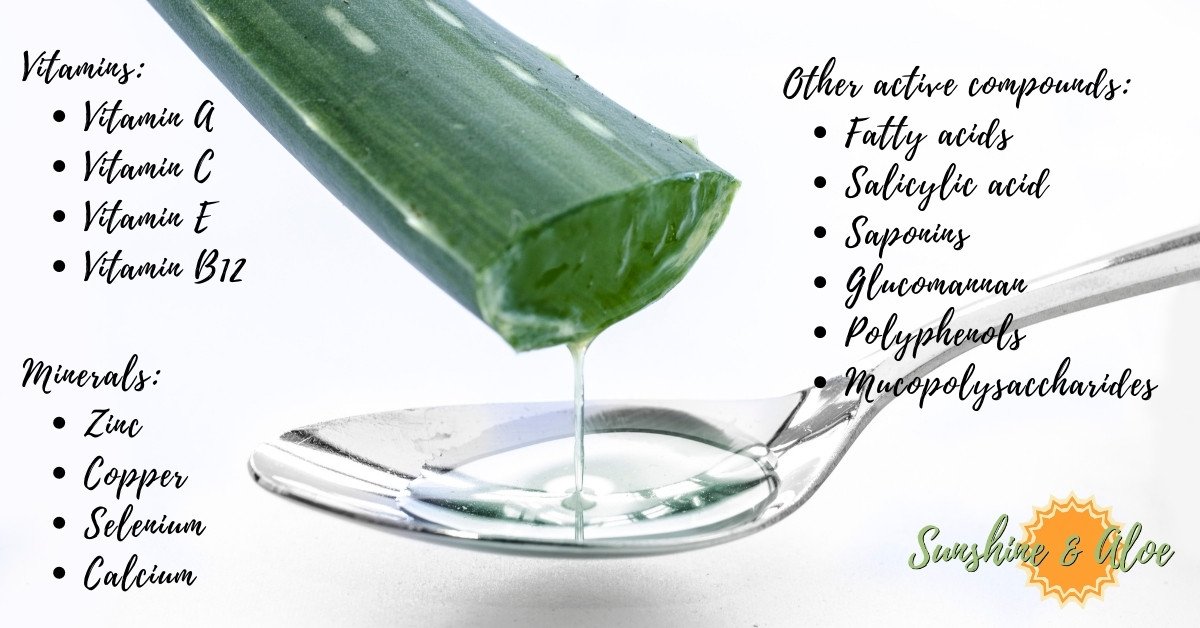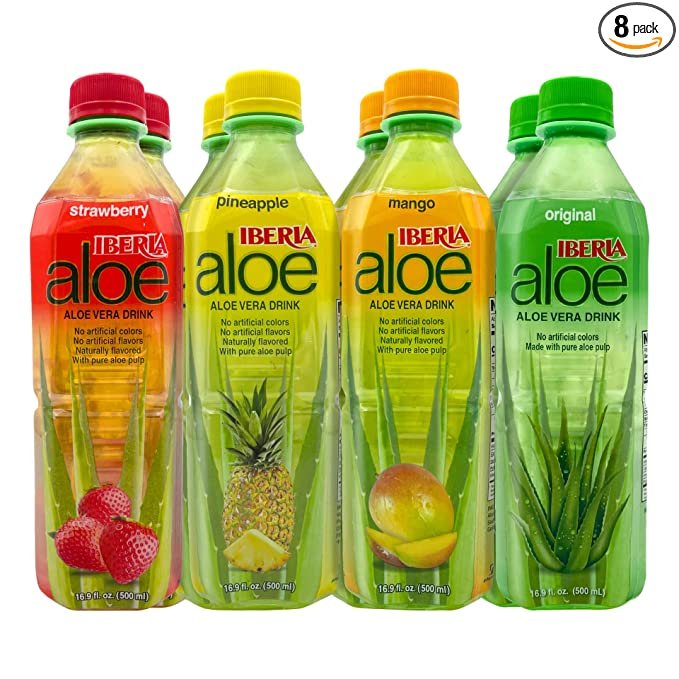Why Aloe Water Isn’t Healthy
Does aloe water live up to the hype? Yeah, I’ve been wondering the same thing too.
Aloe vera is a goldmine of a plant. The gel is rich in vitamins, minerals, antioxidants, fatty acids, flavonoids (like in tea), and many other nutrients. According to an article in the international journal Plant Foods for Human Nutrition, “The bioactive components of aloe have anti-inflammatory effect and aid the treatment of gastrointestinal diseases, i.e., inflammations, gastric, duodenal and intestinal ulcers.”
Pretty amazing, right? Aloe vera can do wonders for digestive issues. And even if you have great digestive health, you can benefit from all of the nutrients packed in the aloe vera gel.
To benefit from aloe vera, you can use aloe vera jelly as a topping for your boba tea, blend aloe vera into your smoothies, add aloe vera to a regular cup of tea…or drink aloe water.
But does aloe water actually do any good?
After poking around and comparing aloe waters, here’s what I found.
What Is Aloe Water?
Aloe water is exactly what it sounds like: aloe mixed with water.
Fresh aloe vera pulp is about 96-99% water. That doesn’t leave much room for solids! However, even though aloe it is mostly water, the inside of the leaf is a gel and not a liquid.
To extract aloe water from the gel, the gel is usually crushed in a high speed grinder or pulper. While some aloe drinks contain pulp, most of them don’t, and the aloe vera is strained to filter out any particles. Once filtered, the liquid is sterilized and other ingredients like preservatives and stabilizers are added. (Click here if you want to learn more about how aloe vera is processed.)
Once the aloe vera juice is processed, the concentrated liquid still retains many of the nutrients that make aloe vera so valuable. But the concentrate is further diluted with water and sweeteners to make aloe water.
Is Drinking Aloe Water Beneficial?
The truth is that every aloe water is different.
Some contain aloe pulp, while some are pure liquid. Some aloe waters may have a high concentration of aloe extract. On the other hand, some aloe waters hardly contain any aloe at all, but have a ton of artificial sweeteners and flavors.
My advice? Always check the labels.
Water is almost always the first ingredient for an aloe water, but make sure that aloe vera juice or aloe vera gel is the second ingredient. If the aloe is way down at the bottom of the ingredients list, then it won’t do you any good.
The other thing you should check for is sweeteners. It’s no surprise that brands add sweeteners to aloe water. After all, aloe vera doesn’t taste that great by itself. It is low-carb, which makes it a pretty healthy drink option, but not a tasty one!
Although you should expect some sugar added, be careful how much a drink contains. For example, OKF aloe water contains fructose and sucralose (sugars) and grape flavoring. One bottle contains 22 grams of sugar (11 per serving.)
On the other hand, Alo aloe water contains 15 grams of sugar per serving, for a whopping 30 grams per bottle. That’s still less sugar than a soda, but it certainly isn’t that great if you are trying to drink healthy!
Still, Alo brand uses natural sweeteners like cane sugar and honey, while OKF uses artificial sweeteners. So which one is healthier? You could make an argument for either one.
Is Aloe Water Better Than Aloe Juice?
At this point you might be wondering, what is the difference between aloe water and aloe juice?
Great question!
Whereas aloe water is aloe + water, aloe juice is made by adding some aloe to a fruit juice. While the added nutrients from the fruit may make aloe juice healthier, juice typically contains A LOT of sugar.
I took a look at popular aloe juices from the brand Iberia, and was shocked by the amount of sugar in each drink. The strawberry flavor has 44 grams of sugar per bottle. The mango flavor has 52 grams. And the original flavor (which is flavored with white grape juice) contains a crazy 56 grams of sugar!
That’s more sugar than a can of Mountain Dew.
Considering all the sugar in aloe vera juices, I would choose aloe water over aloe juice.
How to Make Your Own Aloe Water
If you’ve read this far into the article, you have probably come to the same conclusion that I came to: diluted aloe water with a bunch of sweeteners is not all that healthy.
But…concentrated aloe juice that is freshly extracted from the gel is healthy.
So the best way to make sure you are drinking aloe water that is beneficial for you is to make your own!
Fortunately, making your own aloe water is very easy. All you need is an aloe leaf and a blender.
Once you rinse the cut leaf to remove the aloin (the yellow liquid between the gel and the rind), just toss the chunks of aloe vera gel into the blender. Once it is blended, you can strain out the pulp or leave it in…your choice. Add a little bit of honey for a natural sweetener, and maybe top it off with some fresh fruit slices. Then enjoy your refreshing and nutrient-rich aloe water drink!




